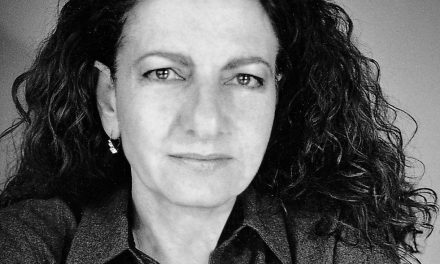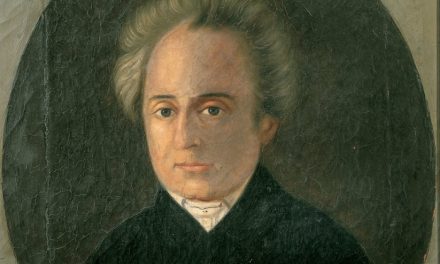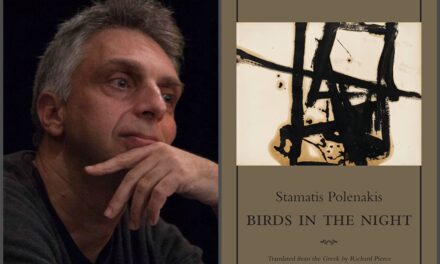Giorgos Skambardonis has published twelve short story collections and seven novels. He received the State Award for Best Short Story Collection in 1993 for his book Η Στενωπός των Υφασμάτων [The alley of fabrics] and the Diavazo Magazine Award in 2004 for his Επί ψύλλου κρεμάμενος [Hanging on flea]. His novels Γερνάω επιτυχώς [Growing up successfully] and Ουζερί Τσιτσάνης [Tsitsanis Ouzeri] were put to the stage at the Νational Theatre of Northern Greece, and was turned into a movie in 2015 by Manousos Manousakis.
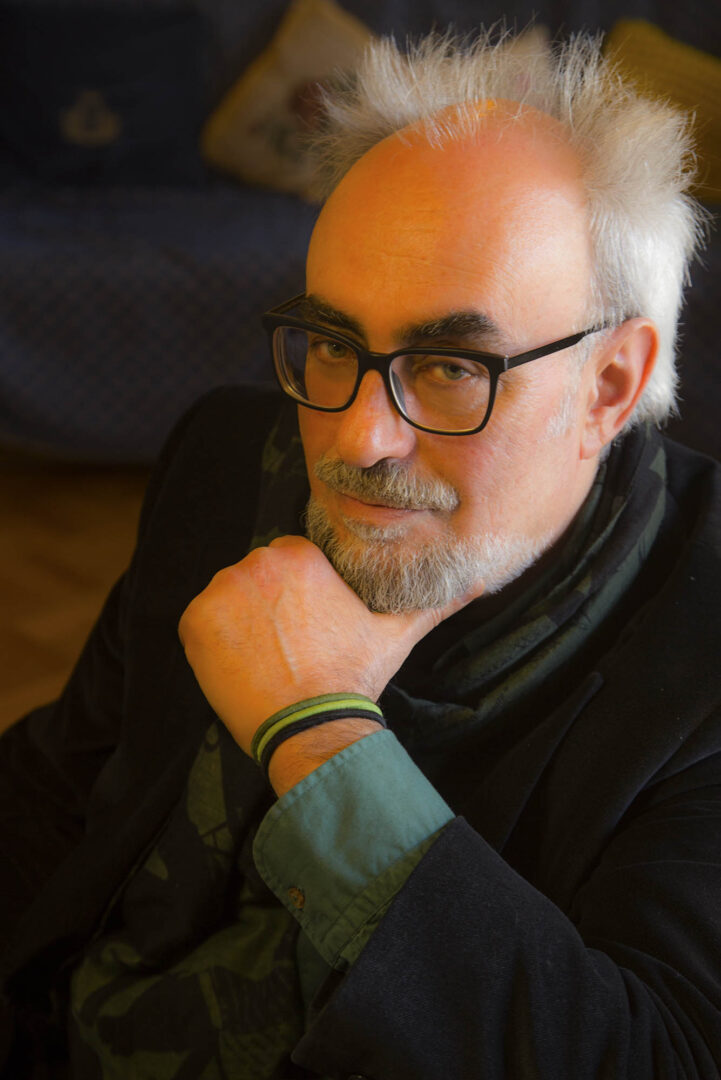
He was the screenwriter of “It’s a long road” by Pantelis Voulgaris in cooperation with the director. Hewas the editor of the newspaper Thessaloniki and the Magazines Θ-97, Tamarix, Hilia Dentra, Panselinos (which received the «European Newspaper Design Awards 2000») and Epiloges of the Sunday edition of Macedonia. In 2010 he received the Botsis Foundation Award and in 2012 the Best Short Story Award by the Petros Haris Foundation of the Academy of Athens for his book Περιπολών περί πολλών τυρβάζω [Strolling and deeply reflecting].
Your latest writing venture Ήλιος με ξιφολόγχες [Sun with bayonets] brings us back to Thessaloniki of the interwar period. Tell us a few things about the book?
It is a novel inspired by the political and social conflicts in interwar Thessaloniki, specifically from the first half of 1931 onwards. The rise of fascism and communism, the involvement of foreign powers, strikes, murders and confrontations that culminate in the first major pogrom against the city’s Jews, in the arson of the Campbell district. It is a novel that combines spy with detective fiction, the romantic with the existential element, it is a coming-of-age story, but also a foreshadowing of the gloomy future that was to follow.
You have characterized the book as a ‘flowing kaleidoscope’, commenting on its autobiographical elements. Could you elaborate on that?
It is indeed a flowing kaleidoscope of the interwar era. The autobiographical element is always present, indirectly, in every book, transfigured and diffused through the suffering heroes.
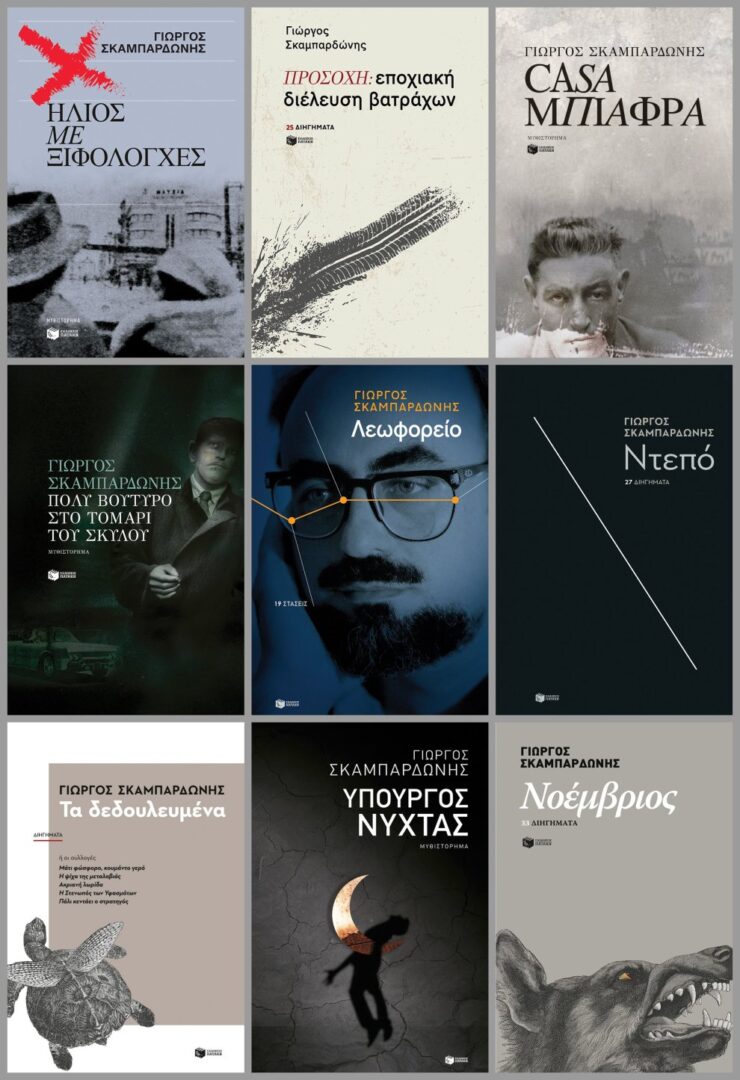
How does literature converse with History? How does the past converse with the present and the future in your books?
In History there are many constants as there are numerous variables. There are some laws and their constant variation, just like in human behavior. Some elements are repeated while new ones arise, depending on the respective occasions and the uniqueness of the “ego” of the heroes. These are inevitably reflected on literature; the protagonists suffer in a similar way, while the uniqueness of their own separate existence, their unique character is also brought to the forefront.
What about language? What role does language play in your writings?
Language plays a pivotal role. There is no literary style without it. And each character always has his/her own linguistic characteristics that distinguish them. Language, the choice of words, plays a catalyst role in the correct formulation, the rhythm, the deeper meaning and the literary style of each writer.
Since your first book in 1992 to the present, more than thirty years later, what has changed and what has remained the same in your writings? Are there recurrent points of reference in your books?
Since 1992, there has been a constant anxiety within me to evolve, to go, every time, at least half a step further. It is not easy because it requires constant vigilance and rejection of the acquired. Avoiding mannerism and stagnation. One must have the rigor to cut, to constantly surpass oneself, to move forward. Otherwise writing has no meaning.
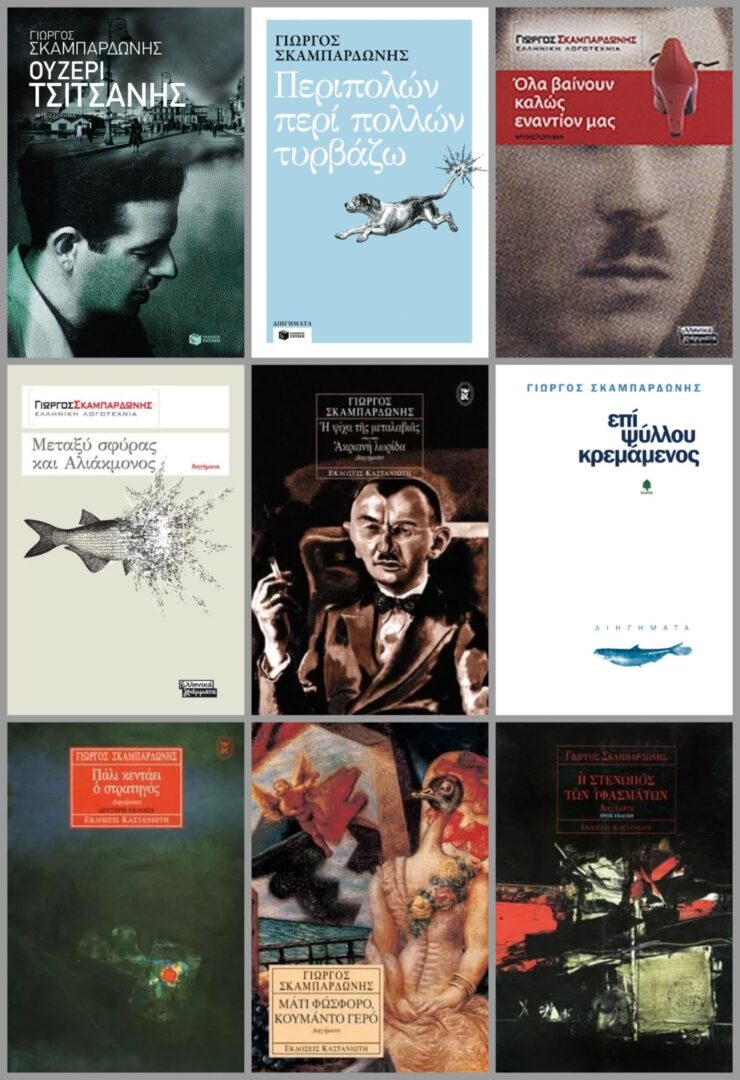
Novels, short story collections, screen plays, newspapers, literary magazines, a life dedicated to writing. What is that binds all these different attributes together?
The writing itself, the language, the anxiety to express in many ways what moves me, what bothers me, what inspires me, or what upsets me. More so those that cause me awe, awe for life. For the miracle and tragedy of existence.
Does contemporary Greek literature have the potential to move beyond national borders? How crucial is the role of translation in this respect? What is lost and what is saved in the process?
Translation into other languages, difficult though it may be, is at the same time important even if it is not perfect. It also depends on the translator. We all know it’s a very difficult task. But, nevertheless, there is always profit, even if some elements are lost along the way. We too read the great foreign authors from mediocre, perhaps, translations, but, in essence, the final profit is incalculable.
*Interview by Athina Rossoglou
TAGS: LITERATURE & BOOKS | READING GREECE

